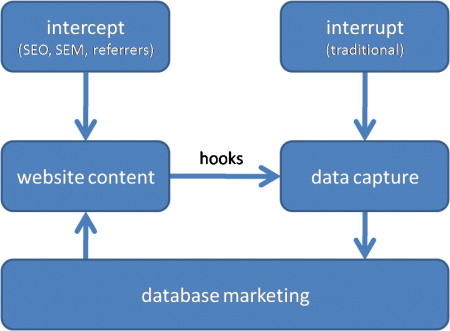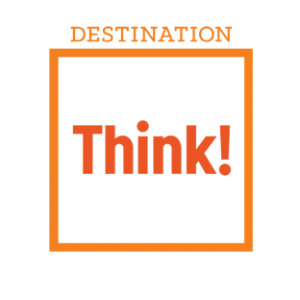The Archives
-
Marketing
Advertising as a sign of product failure?

artwork by Hugh MacLeod
Interesting post from Fred Wilson, a VC and principal of Union Square Ventures about advertising (he calls it marketing).
This quote stands out:
I believe that marketing is what you do when your product or service sucks or when you make so much profit on every marginal customer that it would be crazy to not spend a bit of that profit acquiring more of them (coke, zynga, bud, viagra).I’ve often thought that advertising is what you do when a product is either mediocre or commoditized. If customers don’t love your product, give you repeat business and tell their friends, you’ll have to do the talking yourself through paid media. Big brands like Google, Facebook, Zara, Starbucks and Zappos though demonstrate that you can build large successful brands without much advertising.
The thing I could never reconcile in mind were the ads ran by companies like Apple. They have a cult following and products people love and rave about. Why bother with spending anything on paid media? The second part of Fred’s quote is brilliant and makes sense. Advertising can rally your base and pull people of the line.
I’m not claiming advertising doesn’t work. I’m sure that the amount of sham-wows, slap shops and collectable plates sold as a result of their TV Ads makes the producer a profit. But that doesn’t mean its a good product.
A good product sells itself. Don’t fix a mediocre product with advertising, fix the product instead.
-
Internet, Marketing, tourism bc
Tourism BC 2010 Online Olympics activities: #8 – grow our consumer database
We want to mitigate the risk that when the games are over, we’ll be out of sight, out of mind. All activities are geared towards making sure the impression we make is a big one and over the last few days I’ve shared our strategies to maximize the destination awareness and get people to start thinking about a possible visit by visiting our consumer websites.
Part of our post-games strategy is to be pro-active when the games are over and we’re putting a lot of energy into growing our consumer database. That way, we don’t have to rely on people remembering BC is great, but we can pro-actively tap them on the shoulder and remind them. Our database marketing program has evolved into sophisticated event based communication, customized to individual consumer profiles. The more consumers we can add to the database, the better guarantee for success.

The chart above show our model for our typical approach to driving website visitation and data capture (growing our consumer database).
Intercept
Intercept tactics are targeting consumers who are specifically looking for information we provide. And in previous posts I already described some of the main activities we’re engaged in during the games; SEO/SEM and referral links. These tactics are proven to be very effective at driving highly qualified visitors.
Interrupt
Interrupt tactics are more traditional and includes things like online display advertising. These tactics aren’t necessarily targeting people who are looking for our information but target the people who fit our target audience. They might be looking for something else like medal standings and the purpose of the advertising is to get them interested in our message.
That’s why we use very direct and strong call-to-actions. In the case of the Olympics, a contest to win a trip to BC. We’ve learned that interrupt tactics aren’t the most effective at driving website visitation, but very effective at growing our consumer database (data capture).
Hooks
Intercept tactics drive a lot of qualified visitors to our website. We try to grow our consumer database by leveraging these visitors through hooks. Hooks are tactics on the website with the purpose of growing our consumer database (data capture). We run contests, offer free brochures, maps, eNewletters and more. It’s like fishing in your own pond by adding value to the consumer.
Putting it all together
We use the model above to make investment decisions. For example (note: completely fictional numbers): if it costs $25 to get add a consumer to our database through an interrupt tactic, and we add 1% of our website visitors to our database, a cost per click of $0.25 through a PPC campaign would achieve the same results from a data capture perspective. Plus we’d get 100 qualified people on the website.
Finding the right balance between all objective leads to the right investment strategy.
-
Internet, Marketing, tourism bc
Tourism BC 2010 Online Olympics activities #7: online advertising
02.20.10 | Permalink | 3 CommentsTo maximize the games, there’s a role for advertising as well. A TV commercial was produced to build the destination brand and also serves as the call to action for people watching the games and make sure consumers know where to go for more info and start the trip planning process. Consumers in the US and Canada are encouraged to visit HelloBC.com with the help of BC born celebrities (more about the commercial here).
The purpose of our online ads is not to just get people on our website, but do something very specific; grow our consumer database. The ads have a contest as a call-to-action where they can win a trip to BC this summer.

Tomorrow: our full strategy to leverage the games to grow our consumer database

